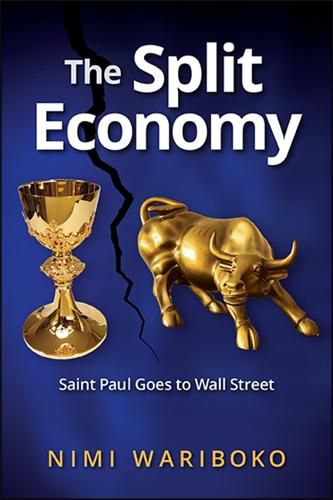Readings Newsletter
Become a Readings Member to make your shopping experience even easier.
Sign in or sign up for free!
You’re not far away from qualifying for FREE standard shipping within Australia
You’ve qualified for FREE standard shipping within Australia
The cart is loading…






This title is printed to order. This book may have been self-published. If so, we cannot guarantee the quality of the content. In the main most books will have gone through the editing process however some may not. We therefore suggest that you be aware of this before ordering this book. If in doubt check either the author or publisher’s details as we are unable to accept any returns unless they are faulty. Please contact us if you have any questions.
Starting with Marx and Freud, scholars have attempted to identify the primary ethical challenge of capitalism. They have named injustice, inequality, repression, exploitative empires, and capitalism’s psychic hold over all of us, among other ills. Nimi Wariboko instead argues that the core ethical problem of capitalism lies in the split nature of the modern economy, an economy divided against itself. Production is set against finance, consumption against saving, and the future against the present. As the rich enjoy their lifestyle, their fellow citizens live in servitude. The economy mimics the structure of our human subjectivity as Saint Paul theorizes in Romans 7: the law constitutes the subject as split, traversed by negativity. The economy is split, shot through with a fundamental antagonism. This fundamental negativity at the core of the economy disturbs its stability and identity, generating its destructive drive. The Split Economy develops a robust theoretical framework at the intersection of continental philosophy, psychoanalytic theory, theology, and political economy to reveal a fundamental dynamic at the heart of capitalism.
$9.00 standard shipping within Australia
FREE standard shipping within Australia for orders over $100.00
Express & International shipping calculated at checkout
This title is printed to order. This book may have been self-published. If so, we cannot guarantee the quality of the content. In the main most books will have gone through the editing process however some may not. We therefore suggest that you be aware of this before ordering this book. If in doubt check either the author or publisher’s details as we are unable to accept any returns unless they are faulty. Please contact us if you have any questions.
Starting with Marx and Freud, scholars have attempted to identify the primary ethical challenge of capitalism. They have named injustice, inequality, repression, exploitative empires, and capitalism’s psychic hold over all of us, among other ills. Nimi Wariboko instead argues that the core ethical problem of capitalism lies in the split nature of the modern economy, an economy divided against itself. Production is set against finance, consumption against saving, and the future against the present. As the rich enjoy their lifestyle, their fellow citizens live in servitude. The economy mimics the structure of our human subjectivity as Saint Paul theorizes in Romans 7: the law constitutes the subject as split, traversed by negativity. The economy is split, shot through with a fundamental antagonism. This fundamental negativity at the core of the economy disturbs its stability and identity, generating its destructive drive. The Split Economy develops a robust theoretical framework at the intersection of continental philosophy, psychoanalytic theory, theology, and political economy to reveal a fundamental dynamic at the heart of capitalism.